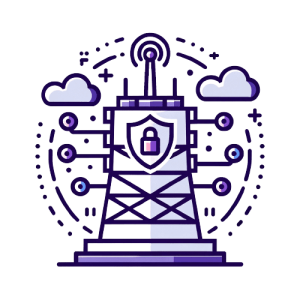In today’s digital landscape, securing your network perimeter is crucial to safeguarding your organization’s data and assets from cyber threats....
I GUESS YOU DON'T WANT TO MISS THIS
You are probably here because of our amazing expertise on Cyber Security.
Well, turns out we are even better doing Artificial Intelligence.
Our Thinking
Welcome to our comprehensive guide on Zero Trust Network Security. We delve into the concept of Zero Trust, how it...
In today’s digital age, ensuring the security of your network is paramount to safeguarding your organization from cyber threats. Network...
In today’s interconnected world, the Internet of Things (IoT) has revolutionized the way we live and work. With this convenience...
Our Vision
To be at the forefront of Cybersecurity innovation, shaping a future where technology amplifies human potential and creates sustainable growth for businesses and communities alike.
Our Mission
Born from a breakthrough moment during a late-night hackathon, our mission is to provide ethical, powerful, and transformative Cybersecurity solutions that redefine industry standards and enrich lives.
Working Process
Our Working Process: Seamless, Transparent, Impactful
Navigating the world of Cybersecurity doesn’t have to be complicated. We’ve streamlined our working process to ensure smooth communication, efficient delivery, and impactful results.

Consult & Strategize
Start with a no-obligation consultation to define your needs, followed by a customized Cybersecurity roadmap tailored to achieve your goals.
Develop & Deploy
Experience a seamless design and implementation process, guided by regular updates to keep you in the loop.
Optimize & Support
Benefit from post-launch reviews and ongoing support to ensure your Cybersecurity solutions continue to deliver impactful results.
HOW CAN WE HELP?
At dig8ital we help organizations meet their cyber security challenges by adopting new innovative approaches that are comprehensive, strategic and pragmatic.
We do this by partnering with executives, senior business leaders and their people, across a diverse range of industries, to provide expert strategic advice around cyber security defence in the digital ecosystem.
We have a range of solutions to help you build cyber resilience:
- Cyber security strategy
- Transformation and change
- Building a cyber security culture
- Cyber security operations and security architecture













